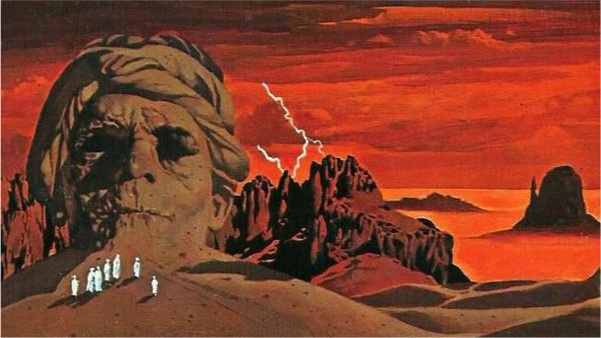
The story of heroes can encourage us to believe in goodness. However, it should not be mistaken that they are people who are completely devoid of flaws or mistakes. The second book of the Dune series titled “Dune Messiah” continues the heroic story of Paul Atreides, better known as Muad’Dib. This sequel conveys a message of how destructive religious propaganda can be, and that there are no leaders that do not commit mistakes, even those who have special powers or prodigious abilities. It is a tragic story revealing the imperfections and the holes in the plan that Paul had put in place, which took a toll on his personal life, as well as his political standing as the Emperor of the known Universe.
Dune Messiah, along with other books of the Dune series was written by Frank Herbert, an American science-fiction writer, during the 1960s. During this time, a lot of technological advancements were developed, where humans built rockets for space travel, while also developing computers which are central to the lives of contemporary people. People back then were speculative about what the future could look like, and as such, authors at the time wrote countless science-fiction novels. However, it is also a time when a lot of nations and superpowers conflict with each other, developing more powerful and destructive methods to destroy one another. Dictatorship and political movements across the world are gaining traction. Because of this, some books were also written, one of which was the Dune series.
It must be worth noting, however, that the Dune series was more than just the speculated future. It was also a novel series that mirrors historical events, particularly political and societal issues perceived then and until now. One of these issues is the notion of using religion as propaganda, which was mentioned in the book. After Paul’s triumph against the Harkonnens, the fanatic Fremen moved forth through the Universe, causing a widespread war of religion where sixty billion were killed in the process. The use of religion as propaganda is also prevalent in historical events. One example of this is Manifest Destiny, which was an idea that white Americans were divinely ordained to inhabit the entirety of North America (Khan Academy, n.d.). As a result, the civil war was incited, killing many native Americans in the process, and resulting in changes in the ecosystem due to the death of many American bison (Lowndes, 2024).
“Government cannot be religious while being self-assertive at the same time. Religious experience needs spontaneity which laws inevitably suppress. And you cannot govern without laws”. Those were the words of his mother, Lady Jessica, in the letter she sent to Paul’s sister, Alia Atreides. While religious propaganda done by the Fremen has created a significant effect on the culture of those they have conquered, another problem in Paul’s governance is his lack of control over their actions. This suggests that the nature of religion can be paradoxical when incorporated with the laws that the government uses to employ stability. However, Paul had no choice but to utilize the seeds planted by the Bene Gesserit, a mysterious sisterhood, in the manipulation of the Fremen religion. It led them to believe that there would be a prophesied Messiah known as Lisan Al’ Gaib, translated as “Voice from the Outer World”. In the real world, it is reflected in some religion or cult, which uses spiritual manipulation to control or influence people’s behavior. This can have lasting mental and emotional impact on a person, as belief can be a powerful weapon to be used against people.
In addition to some themes presented, Dune Messiah also showed Paul’s struggle to battle with the decisions he has to face in the story. His prescience influenced him to follow a path for the Human race to flourish and avoid stagnation. However, this puts him in an inevitable position due to his leadership establishing a religious government, as well as the aftermath of the holy war that led to the death of sixty billion people. It also meant that he would have conspirators who plan for his rennouncement renouncement of the throne, and to remove the pressure that Paul had put on them. By his prescience, he had recognized this and had made a way to avoid such worse events from happening. However, he still made mistakes and ultimately renounced his title as emperor. Paul’s downfall serves as a reminder that no leader does not make mistakes, and even with his prescience, he could not prevent such events from happening as they are bound to occur.
In short, Dune Messiah is a philosophical and sci-fi book that is filled with sociological themes carefully crafted to create a dynamic narrative. Revolving around the consequences of Paul’s actions has brought a lot of sociological issues in the spotlight, revealing its historical relevance. Taking into account Paul’s position as an emperor and his predicament suggests choosing careful trust over blind allegiance in political leaders.
